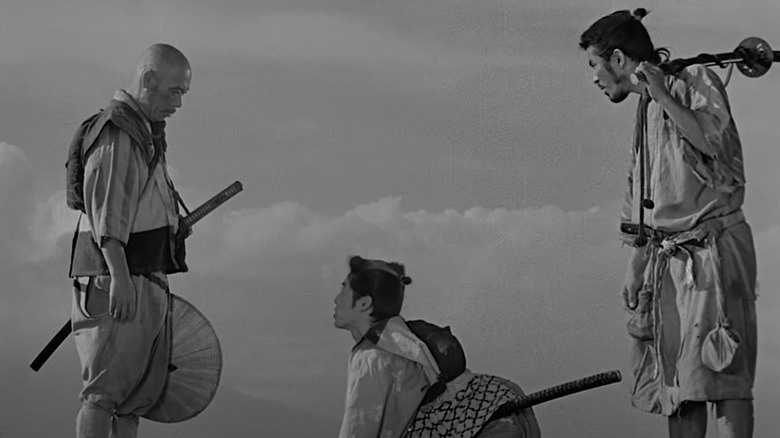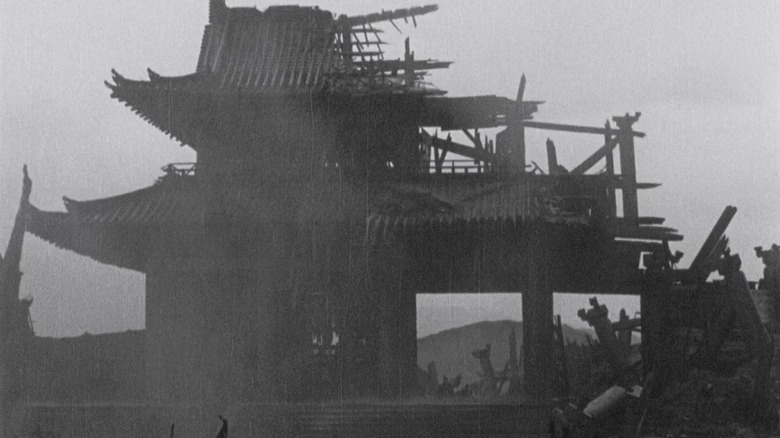Akira Kurosawa Had A Theory About His Films' International Appeal
When Akira Kurosawa's "Rashomon" won the prestigious Golden Lion award at the Venice Film Festival in 1951, it allowed Japanese cinema to begin gaining more of a foothold abroad. Throughout his career, Kurosawa incorporated Western influences into his work, with Shakespeare being one ready example as seen in Kurosawa's "Macbeth" and "King Lear" adaptations, "Throne of Blood" and "Ran." The Westerns of John Ford were another major influence on Kurosawa, who managed to combine such inspirations with a local sensibility rooted in his own unique cultural background. In turn, Kurosawa earned the admiration of global audiences and filmmakers, with "The Hidden Fortress" serving as a major inspiration for George Lucas with "Star Wars," and "Yojimbo" indirectly making Clint Eastwood a movie star after Sergio Leone remade it as "A Fistful of Dollars."
After the release of his final film, "Madadayo," in 1993, Kurosawa sat for an interview with fellow Japanese filmmaker Nagisa Oshima ("In the Realm of the Senses"), who asked the aging director how he felt his style fit into the post-World War II world. Kurosawa said:
"I didn't know why, but people responded to my films. I found it puzzling. In the case of 'Madadayo,' for example, I thought people overseas wouldn't understand it, but it got a great response. [...] They understand some parts of it better than the Japanese audience."
'Every country has similar concerns'
By the 1990s, Kurosawa had appeared onstage at the Oscars to receive a lifetime achievement award from Steven Spielberg and the aforementioned George Lucas. His legacy was secure, but at home in Japan, the international success Kurosawa achieved sometimes came with accusations that he was pandering to Western tastes. In his interview with Oshima, Kurosawa reiterated that he did not understand exactly why his films had found such appeal outside Japan, but he suspected it might have something to do with his approach to depicting the lives of his characters:
"I don't know why people respond to my films. But I think what appeals most to the foreign audience is the fact that I'm not seeking to please them. You can sense that kind of movie right away. If you try to add appeal by playing up Japanese qualities and depict a story that Westerners will find exotic, they react very negatively. But if you, as a Japanese person, just tell a story about the concerns of Japanese people, it will appeal to people worldwide, as every country has similar concerns. I guess that's what people find most appealing about my films. It's no good to try to cater to the overseas market. I've been asked if I make special concessions to appeal to foreign audiences. It's precisely because I do nothing of the sort that they appeal to them."
What Kurosawa seems to be talking about here is finding universality in the specific. While critics in his lifetime may have bristled at his increasingly popular films as being "not Japanese enough," Kurosawa simply applied the influences he had absorbed to tell stories about people having relatable experiences. His films are Japanese, but they're not only Japanese, and that enabled them to translate across cultures.

